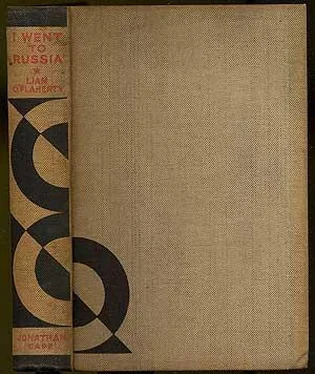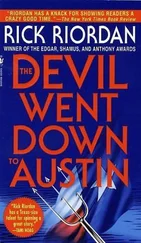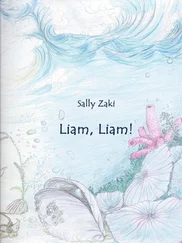I Went To Russia by Liam O’Flaherty
To
Harold Stroud
Chapter I. The Soviet Ship
On the evening of April 23rd, 1930, I set out for Moscow on a Soviet ship, in order to collect material for a book on Bolshevism. It pains me to admit it, but it is the truth. I set out to join the great horde of scoundrels, duffers and liars who have been flooding the book markets of the world for the past ten years with books about the Bolsheviks. I had already travelled in an honest fashion to various parts of the world, for the sole purpose of breathing, walking, lying, sitting, eating, drinking, loving; never for the purpose of squinting at strange buildings or at odd people, or to scavenge information for newspapers and learned societies about customs that are different from our own. Indeed, I might have died honourably without having become such a scavenger had not poverty and the peculiar nature of my profession forced me to become one.
Nowadays, owing to the growth of democracy and the machine, the profession of literature has ceased to be an art. It is an industry. Literary men, if they must eat by their work, are forced to watch the market and pander to the tastes of the public, just like any other class of manufacturers. Just as clothiers make green cloth, or blue cloth, or red cloth in accordance with the change of fashion, so must novelists write about sex or adventure or the Yellow Peril or psycho-analysis. At the moment, two kinds of books are in fashion, autobiographies and books about the Bolsheviks.
I refrained from writing an autobiography as long as I could. At last I was forced by hunger to do so. Immediately afterwards I realised that I had to scavenge among the Bolsheviks or starve a little later. So I set out for Moscow with black anger in my heart against the whole of human society, which has become so corrupt and democratic and indifferent to art.
Thank Heaven! Bolshevism means no more to me than Lord Beaverbrook’s Empire Crusade or the Roman Catholic Religion. I loathe all political beliefs. I brand as a perverted scoundrel any man with an itch for changing the world and the habits of mankind. For the purpose of my work, the British Empire is no whit better than the Republic of Liberia. I am more interested in the well-being of horse-racing than I am in the abolition of slums, or the universal cure of prostitution. I consider that a good game of Rugby football is more important than all the speeches ever made by Mr. Lloyd George. It is my business to observe human beings and to dig beneath the labels, under which they hide their beauty or their infamy. For that reason, I am more qualified to write this book than most people. I write it honestly, for the sole purpose of making some money; neither to convert the British proletariat to Communism, nor to incite old parsons, butlers and maiden aunts into a war for the preservation of their virtue against the oncoming Soviet hordes.
I had no difficulty in getting a visa for my passport. Against such a callous writer as myself, their embassies and consulates were helpless. If they refused a visa I could write a book in any case without ever going to Russia. Many have done so and the fact that their books have had no great success is rather a proof of the lack of talent of the authors than an indictment of the method. So the Bolshevik envoys, considering that courtesy was their best policy, covered a page of my passport with words and figures that were Hebrew to me and told me I could visit the Soviet Union for a period of one month, taking with me a maximum luggage of three suits of clothes, six pairs of socks, four shirts, two pairs of pyjamas, six collars, two towels, three pairs of shoes, soap, a packet of Gillette razor blades with razor, and a marine compass for finding my way in the streets of the more Asiatic cities of the Soviet Union. Being still in a state of violent anger while I applied and waited for my visa I was unable to observe properly those with whom I came in contact, but I have a vague memory that most of them were Jews of the polite kind.
Indeed I conducted myself with such arrogance that I was given a berth on a ship that was taking no passengers for that trip; for instead of going direct to Leningrad, she was stopping at Norway for cargo.
‘The ordinary trip is five days,’ said the clerk at the Soviet shipping agency. ’This trip will take twelve days. Surely you prefer to wait for another ship or go by train?’
‘I must go at once and by ship’, I cried, striking the fellow’s counter with such force that he understood at once I was a dangerous man.
‘Very well,’ he said. ‘It can be arranged.’
So he telephoned to the ship a few hours before it sailed and I set out for the docks almost at once. When I arrived, they were already preparing to put to sea. Nobody expected me and no preparations whatever had been made for my accommodation. I make a point of this, because it is the common belief that the Bolsheviks make special provision for writers, showing them everything that is good and preventing them from seeing whatever is bad in the Communist Commonwealth. I, on the contrary, caught the ruffians in the very act of leading their abnormal lives.
At first sight, I could see nothing abnormal about them. I must admit there was a lot of litter on the decks that might have been used for wrapping up corpses and some fellows were hauling ropes that might have once been used for hanging innocent people, and from the dress of the seamen one might easily deduce that they were pirates on an American film ship. But the chief officer, who met me at the entrance to the companion way on the lower deck, was a most charming North Russian, with the large, pale, smiling face of the pure Slav. I gave him my papers and asked him could I have a drink at once.
‘Come,’ he said. ‘I go tell steward. Follow please.’
He brought me into the officers’ mess, which was the first room on the left. Then he bowed politely and left me in order to fetch the steward. The room was brand new, fitted out very creditably. There was nothing unnecessary. Every inch of space was compactly organised. There was no hint of luxury. At once it reminded me of the mess room in a monastery. I also noticed that everything possible bore the Soviet Arms in red. That increased the monastic impression, for people with religions love to carve their symbols, not only on their furniture but even on their underwear.
The chief officer returned and beckoned to me a trifle furtively. His furtiveness cheered me, since there was a question of having a drink. It reminded me of my own country. In Ireland there is always something secret about drinking which makes it an adventure. Recognised topers in country villages, where the slightest and most secret sins are common knowledge, have a habit of leaning over the bar counter and whispering their order into the ear of the barmaid, who assumes the proper air of taking part in a conspiracy. Even at dinners in private houses, the host secretly invites his guests into the kitchen or the cubby-hole, with many a ‘hush’ and a finger to the lip, for fear ‘she’ might see him uncork the jar of old whisky. I mistook the mate’s furtiveness for this admirable Irish attitude towards the beautiful ritual of drinking. But as I followed him out into the corridor, he whispered:
‘In my cabin better. There nobody see you.’
There was no joy in his voice. I could detect, on the contrary, a horrid fear, which made me feel sorry I had set foot on the ship. Here, I understood at once, drinking was regarded as a crime and drinkers were criminals. Yo ho ! And a bottle of mineral waters.
‘Hell!’ I thought. ‘What sort of a ship is this?’
In his cabin, which was opposite the mess room, the mate was the essence of courtesy.
Читать дальше












